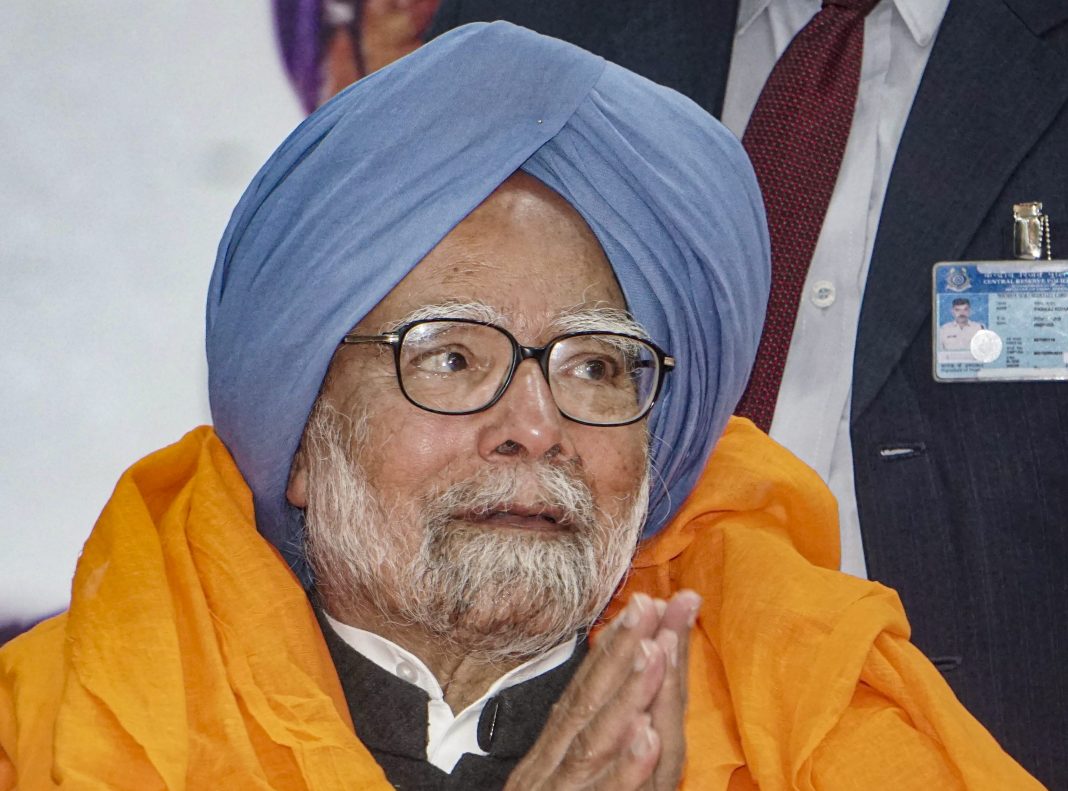{IMAGE – PTI}
Manmohan Singh, India’s 13th Prime Minister and the leader who played a key role in opening up the country’s economy, died on December 26, 2024, at the age of 92. His death marks the end of a time that changed India into a major player in the global economy.
Singh was Prime Minister from 2004 to 2014 and was known for his honesty and deep understanding of economics. His time as Finance Minister in 1991 was especially important, as he introduced major changes that moved India from a closed economy to one driven by markets, paving the way for huge growth.
Born on September 26, 1932, in Gah, Punjab (now in Pakistan), Singh studied at the University of Cambridge and the University of Oxford, where he earned his PhD in economics. His academic background prepared him well for his later work in public service.
Before becoming Prime Minister, Singh held important roles, such as Governor of the Reserve Bank of India and Chairman of the Planning Commission. As Finance Minister under Prime Minister P.V. Narasimha Rao, he dealt with a major economic crisis by introducing reforms that ended the License Raj, lowered taxes on imports, and attracted foreign investment. These changes helped revive the Indian economy, leading to growth and progress.
In 2004, Singh made history as the first Sikh to become Prime Minister, leading the United Progressive Alliance (UPA) government. During his time in office, he achieved significant milestones, including a major civil nuclear agreement with the United States. This agreement ended India’s isolation in the nuclear field and created opportunities for energy cooperation. The deal showcased Singh’s skill in diplomacy and his forward-thinking approach.
Even though Singh achieved many successes, his time in office also had its difficulties. During his second term, there were claims of corruption and a lack of progress in policies. Issues like the 2G spectrum case and the Commonwealth Games scandal hurt his government’s reputation, and many criticized his leadership. However, Singh was still admired for his modesty and commitment to the country’s development.
In his personal life, Singh was known for living simply and being a scholar. He was married to Gursharan Kaur, and they had three daughters. Even after stepping away from politics, he stayed involved in public discussions, sharing his thoughts on economic and policy issues.
His death has brought heartfelt messages of sympathy from leaders and people around the world. Prime Minister Narendra Modi said, “Dr. Singh’s role in India’s economic growth is unmatched.” “His ideas and leadership will be remembered for many years to come.” Former Congress President Rahul Gandhi said, “India has lost a great leader. Dr. Singh’s work as a reformer and a wise leader will keep inspiring people.”
The government has announced a time of national mourning until January 1, 2025, and a state funeral will be held to honor him. As the country thinks about his life and achievements, Manmohan Singh’s role in transforming India’s economy and shaping its modern identity remains unforgettable.
At a time when economic decisions can change the future of nations, Singh’s smart reforms not only saved India from a financial crisis but also made it a strong player globally. His focus on fair growth and development has had a lasting effect, influencing India’s economic policies even today.
As India bids farewell to one of its most esteemed leaders, the principles and policies championed by Manmohan Singh will continue to influence the nation’s trajectory, embodying his vision of a prosperous and equitable society.
BY – NIKITA



